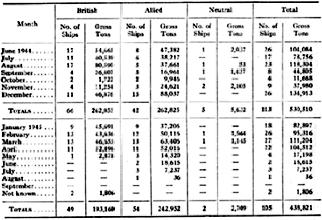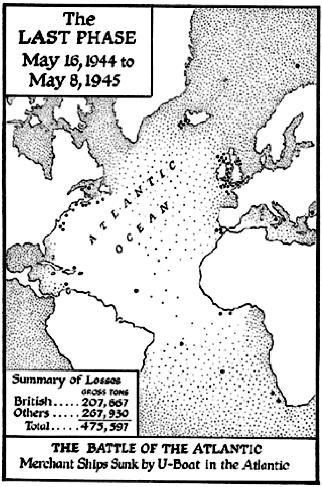Triumph and Tragedy (The Second World War) (138 page)
Read Triumph and Tragedy (The Second World War) Online
Authors: Winston S. Churchill

10. The beaches, exits, communications, and cover
in the Toulon area are most suitable. The Rhone
corridor has its limitations, but is better than Ljubljana,
and is certainly far better than the terrain over which we
have been fighting in Italy.
11. I am impressed by Eisenhower’s statement that
“Anvil” is of transcendant importance and that he can
and will furnish the required additional means to Wilson
without undue detriment to “Overlord,” and by Wilson’s
statement that he can conduct the operation if given an
immediate directive.
12. Wilson’s plans for “Anvil” are well developed,
and hence the operation can be launched with no delay.
13. Since the agreement was made at Teheran to
mount an “Anvil,” I cannot accept, without consultation
with Stalin, any course of action which abandons this
operation. In the event that you and I are unable to
agree to issue a directive to General Wilson by July 1 to
launch “Anvil” at the earliest possible date, we must
communicate with Stalin immediately. Furthermore, I
feel that if we are to abandon “Anvil” we must at once
discuss with the French the use of their forces, which
might by this decision be kept out of the battle in
France while taking losses in a secondary effort in Italy
or the Balkans.
Triumph and Tragedy
862
14. I again urge that the directive proposed by the
United States Chiefs of Staff be issued to General
Wilson immediately. It is evident that the drawing out of
this discussion, if continued, will effectively kill the
prospects of “Anvil” in time to be of major benefit to
“Overlord.”
15. At Teheran we agreed upon a definite plan of
attack. That plan has gone well so far. Nothing has
occurred to require any change. Now that we are fully
involved in our major blow history will never forgive us if
we lost precious time and lives in indecision and
debate. My dear friend, I beg you to let us go ahead
with our plan.
16. Finally, for purely political considerations over
here, I should never survive even a slight setback in
“Overlord” if it were known that fairly large forces had
been diverted to the Balkans
3


Triumph and Tragedy
863
Appendix E, Book One
SHIPPING LOSSES
MONTHLY TOTALS OF SHIPING LOSSES, BRITISH, ALLLIED, AND NEUTRAL, BY ENEMY ACTION
[
Corrected to June
1952]

Triumph and Tragedy
864

Triumph and Tragedy
865

Triumph and Tragedy
866
Appendix A, Book Two
PRIME MINISTER’S DIRECTIVES, PERSONAL MINUTES, AND TELEGRAMS
January—July,
1945
JANUARY
Prime Minister to Secretary
1 Jan. 45
of State for War
It is not possible for me, on the information available,
to determine how far the high rates for sickness in the
Burma campaign have been due to failure of unit
discipline in enforcing antimalarial orders and how far to
any inadequacy in our medical service; but certain
questions present themselves, on which I should be
glad to have your observations.
1. To what extent have specialists on tropical
hygiene been attached as consultants to the Army at
home and overseas?
2. Have the specialists been given independent
civilian status, or are they posted in subordinate ranks
in the Service hierarchy?
3. What civilian professional advice is available to
the Secretary of State and the Director-General in
considering medical matters? I understand that there
are two committees for this purpose. How often have
these met in each of the last five years, and what sort
of problems have been referred to them?
These questions are not intended to imply any
condemnation of the Royal Army Medical Corps. I have
no reason to criticise their work. I am sure you will
agree however that the drainage of man-power due to
tropical diseases has been of such magnitude that
Triumph and Tragedy
867
every aspect of the matter requires most searching
examination.
Prime Minister to Chief of Air
2 Jan. 45
Staff
German air attack on our airfields in Belgium, It is
very easy to disperse aircraft, and especially to
separate large ones by sandbags, etc. I doubt very
much whether the question of dispersion was examined
as such and rejected. It seems more probable that the
aircraft congestion was allowed to grow and no
preparations were made. After all, we have had many
of these airfields in our possession for months. No
doubt it was their crowded state that led the enemy to
attack. What will be done now? Will the airfields be left
in their congested state, or will they be properly
dispersed? I should have thought dispersion would be
part of the drill the moment there was time to spare. I
cannot consider the incident satisfactory, and I should
like to have a report upon the points I have mentioned.
2. There is another incident which requires your
attention, and that is the surrender at Kifissia of about
700 R.A.F. ground forces. These men were mostly of
the non-combatant variety, but, in spite of several
warnings, were left out at this detached station seven
miles away from Athens. They had, I believe, two
platoons of infantry to defend them. There appears to
be a bad arrangement between the military and the air.
In a matter like this the military [command] should have
recalled this party instead of letting them linger on, with
the inhabitants, on a precarious footing. I fear the
sufferings of the prisoners may have been very severe.
Naturally I asked Field-Marshal Alexander to have a
searching inquiry made. This is now taking place, but I
wish particularly to know how many of these men had
rifles and what training they had in rifle fire. One airman
told the Field-Marshal, while we were together at one of
the advanced posts, that they were only allowed five
rounds for practice per annum. Everybody — I repeat,
everybody — who wears the King’s uniform should be
Triumph and Tragedy
868
capable of fighting, if it be only with a pistol or a tommy-gun.
SUPPLIES AND RELIEF FOR EUROPE
Prime Minister to Minister of
8 Jan. 45
Production
I am not satisfied that enough weight is being given
to our present shipping difficulties in considering relief
and supplies for Europe.
Pray arrange for the Supplies to Liberated Areas
Committee to make an early report on, inter alia, the
following points. Special regard should be paid to the
demands for shipping under each head.
1. The supply of food and raw materials for which
they now ask.
2. The repercussions on the general supply situation
of any recommendations which may be made by the
Committee on Belgian food needs.
3. Demand likely to be made for the Dutch if their
dykes are blown up and the sea is let in.
4. Demands for Italy — in the light of the 300-gram
ration — and the Balkans.
5. The handing over of ships to the Belgians and the
French to import for themselves, particularly from their
colonies.
6. Programmes put forward by U.N.R.R.A.
7. Can (1) to (6) be achieved without impinging on
the British import programme?
8. Would not delay be avoided if matters of detail
concerning European economic affairs were handled in
London, leaving only questions of principle for
discussion in Washington?
You should make definite proposals to cover the
situation for the next six months, giving the tonnage
required and suggestions as to where it can be got.
